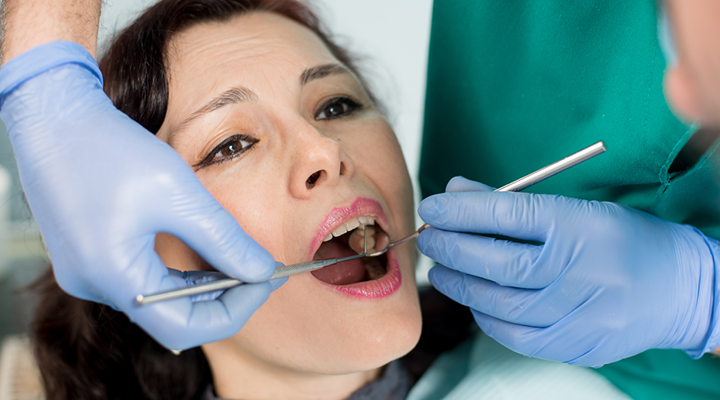Dental care and health care both work to keep you healthy. However, their are different approaches when it comes to preventive and restorative dental care. Restorative dental care occurs when their are already existing oral health problems. Instead of waiting for a problem to occur, dental professionals work to prevent problems before they happen. This is called preventive care.
Let’s dive into the differences between preventive dental care and restorative dental care to get a better understanding of why they are both important to good oral health.
Preventive dental care vs. restorative dental care
Preventive dental care and restorative dental care both keep your mouth healthy.
Preventive care takes a preemptive approach to oral health, meaning it works to prevent serious problems from developing. Preventive dental care includes seeing your dentist twice a year for a cleaning, brushing twice a day with fluoridated toothpaste, and flossing daily. Tending to any other oral health concerns like teeth grinding or a dry mouth should also be part of your preventive care routine.
If preventive care is not enough, restorative care may be needed. Whereas preventive care is meant to prevent problems, restorative care focuses on fixing an existing issue. For dental health, this may be filling a cavity or getting a root canal procedure. Although preventive care is meant to stop these problems, restorative care ensures they won’t get worse.
Good preventive dental care
Good preventive oral health care starts with regular visits to the dentist each year. At home, it’s important to brush your teeth twice a day and floss once a day. Habits that can negatively impact our oral health include smoking, consuming excess sugar, having a poor diet, and alcohol consumption. Reducing these habits while maintaining a good oral hygiene routine can make a huge impact on your oral health.
Having dental insurance is preventive dental care
People with dental benefits are far more likely to see the dentist regularly. Consequently, people with dental coverage are also more likely to practice good preventive dental care at home.
Where’s the education around preventive dental care?
Unfortunately, education around the importance of preventive dental health care is not as prevalent as preventive overall health education.
When was the last time you saw something about the dangers of smoking and its impact on your mouth and teeth? Probably not nearly as often as you hear how smoking impacts your lungs and other parts of the body. However, smoking is responsible for higher rates of caries, periodontal disease, and certain forms of mouth and esophageal cancer. Quitting smoking is an important step in preventive dental care.
Another area of preventive dental care that is not typically covered in school is how to properly brush and floss teeth. While this may seem simple to most, if a child is not getting proper training at home on oral health basics, they can be missing out on one of the best preventive care actions.
Increasing awareness around the importance of preventive dental health care is a great way to decrease the need for restorative procedures and keep people’s teeth and smiles healthy. For tips on basic oral health care, check out this blog.
Learn more about our customizable and affordable dental insurance plans today.
*Updated June 2023

